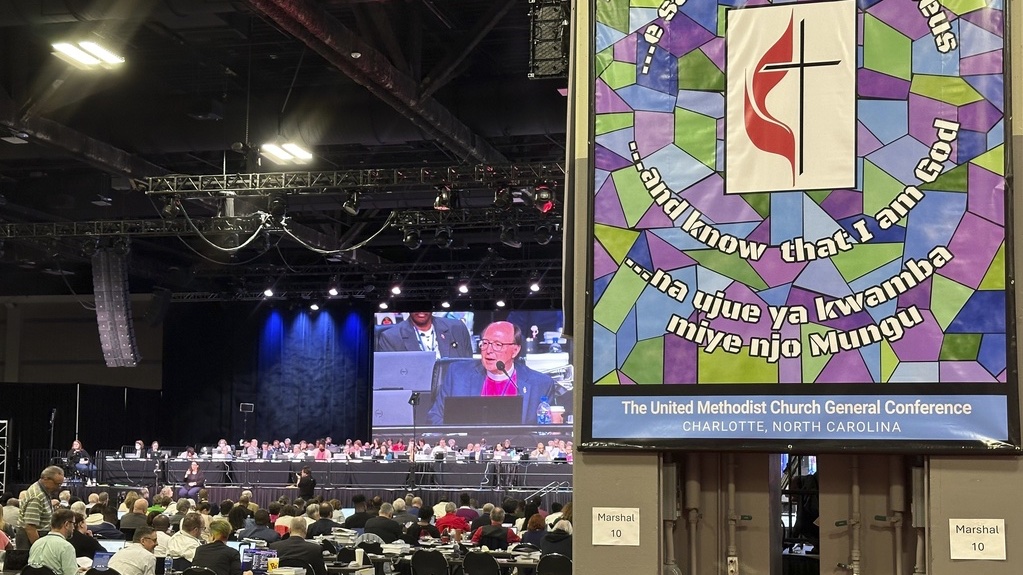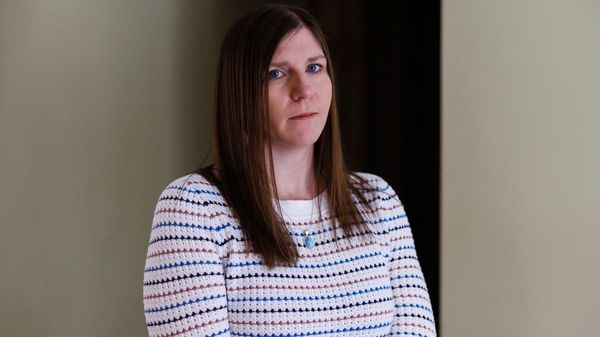May 22, 2009
Church of Scotland, Torn by Gay Issue, Nudged Toward Acceptance by Evangelicals
Kilian Melloy READ TIME: 4 MIN.
The Church of Scotland is facing its hardest choice in a century and a half, sparked in part by the ordination of an openly gay minister to an Aberdeen church.
The faith is considering a measure that some say would toss gay and lesbian people of the faith out the door. But the church's GLBT members have found an ally in a coalition of evangelicals.
The coalition sent a statement to the church's General Assembly, now meeting through May 27, to assert the moral rightness and necessity of accepting gays and lesbians in the church.
Part of the issue, noted Pink News.com in a May 19 article, was the selection of openly gay minister Scott Rennie for service at Queen's Cross Church in Aberdeen.
The article noted that Rennie was overwhelmingly approved by the parish, but his appointment opposed by a dozen members of the church parliament.
In the ensuing controversy, 10,000 people signed a petition to deny Rennie the assignment.
A May 22 article in Herald put the figure at 8,000 signatures, and noted that not everyone who signed the petition belonged to the faith.
Rennie, the Herald reported, is divorced, with one child, and now lives with his male partner.
The General Assembly is considering an "Overture" to deny GLBT members of the church ordination and, as some interpret the measure, to deny them membership in the church at all.
But a coalition of eleven evangelical groups stood up for Rennie and for all GLBT members of the church with a statement sent to the General Assembly in which tradition and Scripture were cited in an argument for acceptance and inclusion.
The statement was carried by the Web site Ekklesia, which posted the document in its entirety on May 22.
As you meet this week, you are faced with a difficult subject--that of homosexuality in the Church," the statement to the General Assembly began.
The authors quickly established their credentials, writing, "We are evangelicals who believe that Scripture does not condemn homosexual relationships. We are made up of heterosexual and homosexual Christians."
The writers sketched out a portrait of the experiences GLBTs have had in their faith, writing, "As a result of the traditional view on homosexuality, it has been our experience that many gay and lesbian Christians have been forced down a path of self hatred, which all too often leads to loss of faith, breakdown or even suicide.
"After much wrestling, prayer and heartache both individually and corporately we have come to understand that God affirms loving faithful same sex relationships."
Asserting their evangelical identity, the authors continued, "As evangelicals, we believe in the Authority and Supremacy of Scripture, and wholeheartedly affirm 'The holy scriptures of the Old and New Testaments are the word of God, the only rule of faith and obedience' (Westminster Larger Catechism 3) without question.
"We understand the various positions within the Church and believe it is a difference of interpretation, not biblical Authority that characterizes our debate. We support and affirm our brothers and sisters who have had the same struggle with sexuality as we have and yet who feel called to singleness, as we feel called to affirm relationships."
The authors cited tradition in their stance, writing, "We stand with the historic orthodox Christian teaching of 'justification through faith alone'--that a person is made right with God because of the Work of Jesus Christ and it is faith in Him that brings us into relationship with God--without any additional requirements, no matter who makes them.
"This is the heart of the Good News that Scotland--and the rest of the world, whether gay or straight--needs to hear from the Church. No one is excluded from relationship with God (or service for him) because they are in relationship with someone of the same gender."
The authors of the statement also rooted their argument in Scripture, writing, "We affirm the teaching of the Lord Jesus Christ and the Apostle Paul that all the Law is summed up in love for God and love for our neighbor (Mark 12; Romans 13).
"We can see nothing in Scripture or our calling as God's People--both gay and straight--where a loving monogamous same sex relationship is inconsistent with this summary of the requirements to live a holy life.
"We pray that the General Assembly will follow the example of her Head, King Jesus, who reached out to the marginalized, the suffering, the oppressed and those on the fringes and who continues to do so today."
The question of Rennie's appointment and the attempt to see the Overture pass the General Assembly--after which it would have to be carried by subsequent votes involving member parishes before becoming church law--echo a similar split that threatens the global Anglican church with schism.
As with Rennie and the Church of Scotland, the Anglicans were deeply split by the elevation of an openly gay man, Gene Robinson, to the ppost of Bishop in the American arm of the church.
The Anglican church had long been simmering over internal tensions regarding the role of women in the ministry. The elevation of a gay man to the status of Bishop is credited with bringing those tensions to a boil.
Similarly, some worry that the Church of Scotland could face a fracture over the question of accepting and including--or rejecting as unworthy--gay and lesbian believers.
The Overture and Rennie's appointment are only two of the issues that face the Church of Scotland with respect to gay and lesbian persons of faith. A May 1 article at Pink News reported that the General Assembly also heard from a HIV Project group that submitted a report calling for leadership from the church in HIV/AIDS awareness and education by training church ministers in the facts about the disease, its transmission, and how to prevent its spread.
Kilian Melloy serves as EDGE Media Network's Associate Arts Editor and Staff Contributor. His professional memberships include the National Lesbian & Gay Journalists Association, the Boston Online Film Critics Association, The Gay and Lesbian Entertainment Critics Association, and the Boston Theater Critics Association's Elliot Norton Awards Committee.





